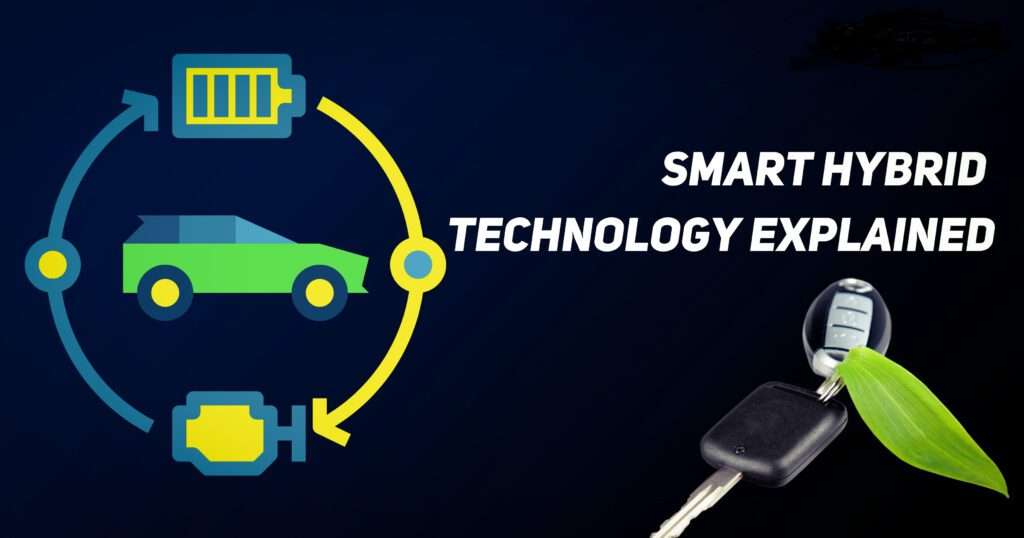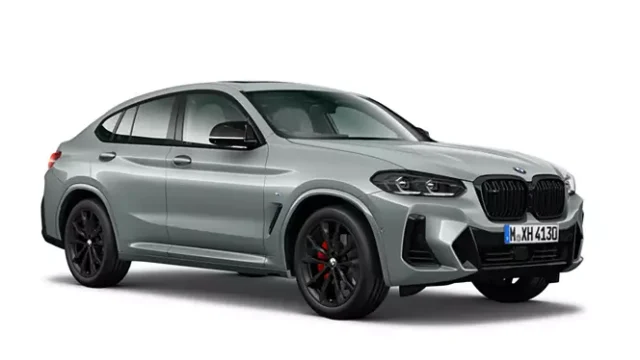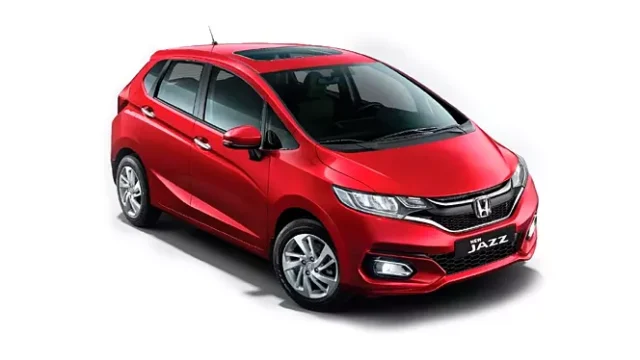In the ever-evolving realm of automobile Hybrid Car Technology, hybrid vehicles have emerged as a popular choice that combines the benefits of traditional internal combustion engines and electric power. These vehicles provide a pleasant ride, higher fuel efficiency, and reduced pollutants. In this article, we’ll go over hybrid cars in great length and look at the huge range of models available.
The transition between traditional gas-powered automobiles and completely electric vehicles is made possible by hybrid vehicles. Without sacrificing performance, its cutting-edge technology promises to increase fuel efficiency and lower carbon emissions.
Contents
- 1 Understanding Hybrid Car Technology
- 1.1 What is a hybrid car?
- 1.2 How do hybrid cars work?
- 1.3 What are the primary advantages of hybrid vehicles?
- 1.4 How do hybrid cars compare to electric vehicles?
- 1.5 Do I need to plug in a hybrid car?
- 1.6 Are hybrid vehicles more energy-efficient than standard vehicles?
- 1.7 Do hybrid cars need special maintenance?
- 1.8 Are hybrid cars more expensive to buy?
- 1.9 Are hybrid vehicles environmentally friendly?
- 1.10 Are there different driving modes in hybrid cars?
- 1.11 Are there government incentives for buying hybrid cars?
- 1.12 Can I drive a hybrid car in electric mode all the time?
- 1.13 How is braking different in a hybrid car?
Understanding Hybrid Car Technology
The hybrid engine, which combines a combustion engine with a variety of electric motors, is what powers Hybrid Car Technology. This configuration makes it simple for the vehicle to convert between using a battery or an engine powered by gasoline, or maybe both.
Advantages of Hybrid Car Technology
Better fuel economy, reduced pollutants, quieter operation, and regenerative braking, which transforms braking force into electric power to replenish the battery, are just a few benefits of hybrid vehicles.

Types of Hybrid Car Technology
Hybrids come in various configurations:
1. Parallel Hybrid: The engine and electric motor can propel the car independently or together.
2. Series Hybrid: The gasoline engine serves as a generator for the electric motor, which solely drives the wheels.
3. Series-Parallel Hybrid: This hybrid type combines features of both parallel and series hybrids for optimized efficiency.
Toyota Prius: Pioneering Hybrid Movement
Many people credit the Toyota Prius for making hybrid technology more widely accepted. It set the stage for other manufacturers to explore and invest in Hybrid Car Technology, becoming a symbol of eco-friendly transportation.
Honda Insight: Stylish and Efficient
The Honda Insight offers a sleek design combined with hybrid efficiency. Its mixed powertrain balances fuel economy and a comfortable driving experience.
Ford Escape Hybrid: SUV with Green Credentials
The Ford Escape Hybrid caters to SUV enthusiasts seeking a greener option. It offers ample space, advanced features, and respectable fuel efficiency for its class.
Hyundai Ioniq: Versatile Hybrid Lineup
There are hybrid, plug-in hybrid, and all-electric variants of the Hyundai Ioniq. Buyers may select the amount of electrification that best meets their demands thanks to this flexibility.
Lexus ES Hybrid: Luxury and Efficiency
Lexus combines luxury with hybrid technology in the ES Hybrid. This sedan delivers a refined driving experience along with impressive fuel economy.
Plug-in Hybrids: The Next Step
Plug-in hybrid cars offer an extended electric-only range. They can be charged from external power sources, allowing for shorter commutes without gasoline.

Hybrid Performance and Driving Experience
The Hybrid Car Technology offers instant torque from electric motors, resulting in smooth and responsive acceleration. The transition between electric and gasoline modes provides a comfortable driving experience.
Charging and Maintenance Considerations
Hybrid automobiles do not require a charging infrastructure, in contrast to fully electric vehicles. Their batteries are charged through regenerative braking and the gasoline engine. Maintenance is generally similar to traditional vehicles, with some hybrid-specific components.
Hybrids and Environmental Impact
Hybrids help to lessen our reliance on fossil fuels and greenhouse gas emissions. They contribute to the shift to a future of transportation that is more environmentally friendly, although not completely emissions-free.

Economic Benefits of Hybrid Ownership
Hybrid car technology often has higher initial costs due to its advanced technology, but the savings on fuel expenses over time can offset this. Some regions also offer incentives for hybrid vehicle owners.
Hybrid Resale Value
Hybrid Car Technology can be sold for a profit, particularly if they are kept up properly and have minimal mileage. This pattern is influenced by their widespread use and the rising demand for fuel-efficient automobiles.
The Future of Hybrid Technology
As technology evolves, Hybrid car technology will likely become even more efficient and offer greater electric-only ranges. Hybrid Car Technology is being financed by manufacturers as part of their larger environmental initiatives.
Conclusion
The introduction of Hybrid car technology, which provides a compromise between conventional gasoline-powered automobiles and totally electric ones, has completely changed the automotive industry. Hybrids play a vital role in defining a greener and more efficient future for transportation because of their wide variety of models and ongoing technological improvements.
FAQs
What is a hybrid car?
A hybrid automobile is a vehicle that propels itself by combining two or more separate power sources. Typically, it combines an electric motor and battery with a traditional internal combustion engine (often gasoline).
How do hybrid cars work?
Hybrid cars utilize the internal combustion engine and the electric motor to optimize fuel efficiency and reduce emissions. Depending on the driving circumstances, power requirements, and need for efficiency, the car’s computer system handles the power sources.
What are the primary advantages of hybrid vehicles?
Improved fuel economy, lower pollutants, the possibility for fuel cost savings, regenerative braking that recharges the battery, and occasional access to incentives like HOV lane usage are all advantages of hybrid vehicles.
How do hybrid cars compare to electric vehicles?
Hybrid cars have an internal combustion engine and an electric motor, offering better range and not requiring charging infrastructure like electric cars. However, electric vehicles produce zero tailpipe emissions and might have longer all-electric ranges.
Do I need to plug in a hybrid car?
Most hybrid cars don’t require plugging since they charge the battery through regenerative braking and the gasoline engine. However, plug-in hybrids (PHEVs) can be set using an electrical outlet for extended electric-only driving.
Are hybrid vehicles more energy-efficient than standard vehicles?
In general, hybrid vehicles use less fuel than conventional gasoline-only vehicles since they may switch to electric power when idle or travelling at moderate speeds.
Do hybrid cars need special maintenance?
Hybrid cars have unique components (like the battery and electric motor) that might require specialized maintenance. However, overall care is usually similar to that of regular vehicles.
Are hybrid cars more expensive to buy?
Hybrid cars can have a higher upfront cost due to their dual powertrain systems and advanced technology. However, potential fuel savings and incentives might offset this cost over time.
Are hybrid vehicles environmentally friendly?
Yes, hybrid vehicles are typically more environmentally friendly than traditional gasoline vehicles since they emit fewer pollutants and require less fuel.
Are there different driving modes in hybrid cars?
Many hybrid cars offer different driving modes, such as “Eco” for optimal fuel efficiency and “Sport” for enhanced performance.
Are there government incentives for buying hybrid cars?
In some regions, there are tax incentives, rebates, and access to carpool lanes for hybrid car owners. These incentives vary based on location and change over time.
Can I drive a hybrid car in electric mode all the time?
Most hybrid cars automatically manage the transition between electric and gasoline power based on driving conditions. Some plug-in hybrids (PHEVs) allow for extended electric-only driving when fully charged.
How is braking different in a hybrid car?
Regenerative braking, which transforms kinetic energy into electric energy to replenish the battery, is a common feature in hybrid vehicles. This might increase effectiveness and save brake wear.


